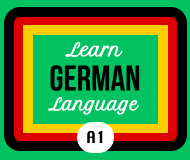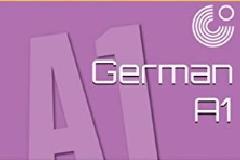Introduction Summary for a German Language Trainer
"Hallo und herzlich willkommen! My name is Ramprasad Talari, and I am a passionate and experienced German language trainer with 5 years of teaching experience. I worked for 5 plus years in Germany and lived there. The language communication problems that indians face ,made me took this path of teaching to help Geman language lerners. Over the years, I have helped students who are absolute beginners and achieve their goals in learning German, whether for study, work, travel, or personal enrichment.
I specialize in making the learning process engaging, interactive, and practical. My teaching approach focuses on real-life conversations, clear grammar explanations, and fun activities to ensure you not only learn but enjoy the process. I also incorporate insights into German culture and traditions to give you a holistic learning experience.
Whether you're preparing for a Goethe exam, moving to a German-speaking country, or simply exploring a new language, I’m here to guide you every step of the way. Together, we will build your confidence to speak, understand, and connect in German.
Let’s start this exciting journey together – los geht’s!"
The entire course of Beginner level A1 curriculum gives you confidence to be able to start a basic conversation and understanding the speaker. This is a absolute kickstarter to become a successful german speaker.
A1 German Language Course Curriculum
1. Vocabulary Building
- Everyday Basics:
- Greetings and introductions (e.g., Guten Tag, Wie geht's?)
- Numbers, days of the week, months, and time expressions
- Common nouns and adjectives (e.g., colors, sizes, and characteristics)
- Basic verbs and their conjugations (e.g., sein, haben, wohnen, arbeiten)
- Essential Themes:
- Family and relationships
- Food and drinks
- Hobbies and leisure activities
- Shopping and money
- Directions and transportation
- Weather and seasons
2. Grammar Fundamentals
- Articles (definite: der, die, das; indefinite: ein, eine)
- Personal pronouns and possessive pronouns
- Sentence structure and word order (e.g., main clauses and yes/no questions)
- Verb conjugations in the present tense
- Basic modal verbs (e.g., können, möchten)
- Simple negation (e.g., nicht, kein)
- Plural forms of nouns
- Prepositions (e.g., in, an, auf) and their basic use
- Question words (e.g., wer, was, wann, wo)
3. Listening and Speaking
- Understanding simple dialogues and instructions
- Responding to basic questions about yourself and your environment
- Practicing pronunciation of common sounds in German
- Role-playing daily interactions, such as:
- Introducing yourself
- Ordering food in a restaurant
- Asking for directions
4. Reading and Writing
- Recognizing and reading simple texts like menus, signs, and short emails
- Writing basic sentences and short paragraphs about:
- Personal information
- Daily routines
- Likes and dislikes
- Filling out simple forms (e.g., name, address, phone number)
5. Cultural Context
- Introduction to German-speaking countries (Germany, Austria, Switzerland)
- Basic cultural norms and etiquette
- Festivals and traditions (e.g., Oktoberfest, Christmas markets)







